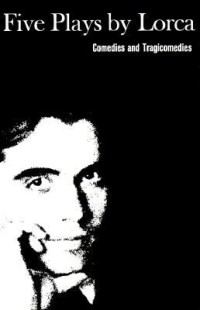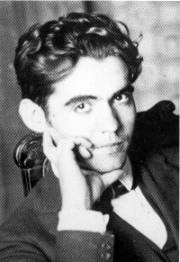
Five Plays
تأليف : Federico García Lorca
النوعية : الفكر والثقافة العامة
نعتذر، هذا الكتاب غير متاح حاليًا للتحميل أو القراءة لأن المؤلف أو الناشر لا يسمح بذلك في الوقت الحالي.
حفظ
Five Plays: Comedies and Tragicomedies by Federico García Lorca ..Federico García Lorca’s position as one of the few geniuses of the modern theatre was firmly established in the English-speaking world with his Three Tragedies. Here, with an introduction by the dramatist’s brother, Francisco García Lorca, are five of his “comedies,” in the authorized translations, extensively revised to reflect recent Lorca scholarship and to convey the sparkle, freshness, and magic of the original Spanish. The Shoemaker’s Prodigious Wife tells of a young beauty married to an old man, a theme that often concerned Lorca. The resolution for the earnest shoemaker, who leaves home and comes back disguised as a puppeteer, is lighthearted, but there is underlying pathos. The Love of Don Perlimplin is again about a girl who weds someone much older, this time a bookish, 18th-century gentleman, who seeks an original but sardonic way out of the situation. According to Lorca himself, “Dona Rosita is the outer gentleness and inner scorching of a girl in Granada who, little by little, turns into that grotesque and moving thing — an old maid in Spain.”
Five Plays: Comedies and Tragicomedies by Federico García Lorca ..Federico García Lorca’s position as one of the few geniuses of the modern theatre was firmly established in the English-speaking world with his Three Tragedies. Here, with an introduction by the dramatist’s brother, Francisco García Lorca, are five of his “comedies,” in the authorized translations, extensively revised to reflect recent Lorca scholarship and to convey the sparkle, freshness, and magic of the original Spanish. The Shoemaker’s Prodigious Wife tells of a young beauty married to an old man, a theme that often concerned Lorca. The resolution for the earnest shoemaker, who leaves home and comes back disguised as a puppeteer, is lighthearted, but there is underlying pathos. The Love of Don Perlimplin is again about a girl who weds someone much older, this time a bookish, 18th-century gentleman, who seeks an original but sardonic way out of the situation. According to Lorca himself, “Dona Rosita is the outer gentleness and inner scorching of a girl in Granada who, little by little, turns into that grotesque and moving thing — an old maid in Spain.”
المزيد...



